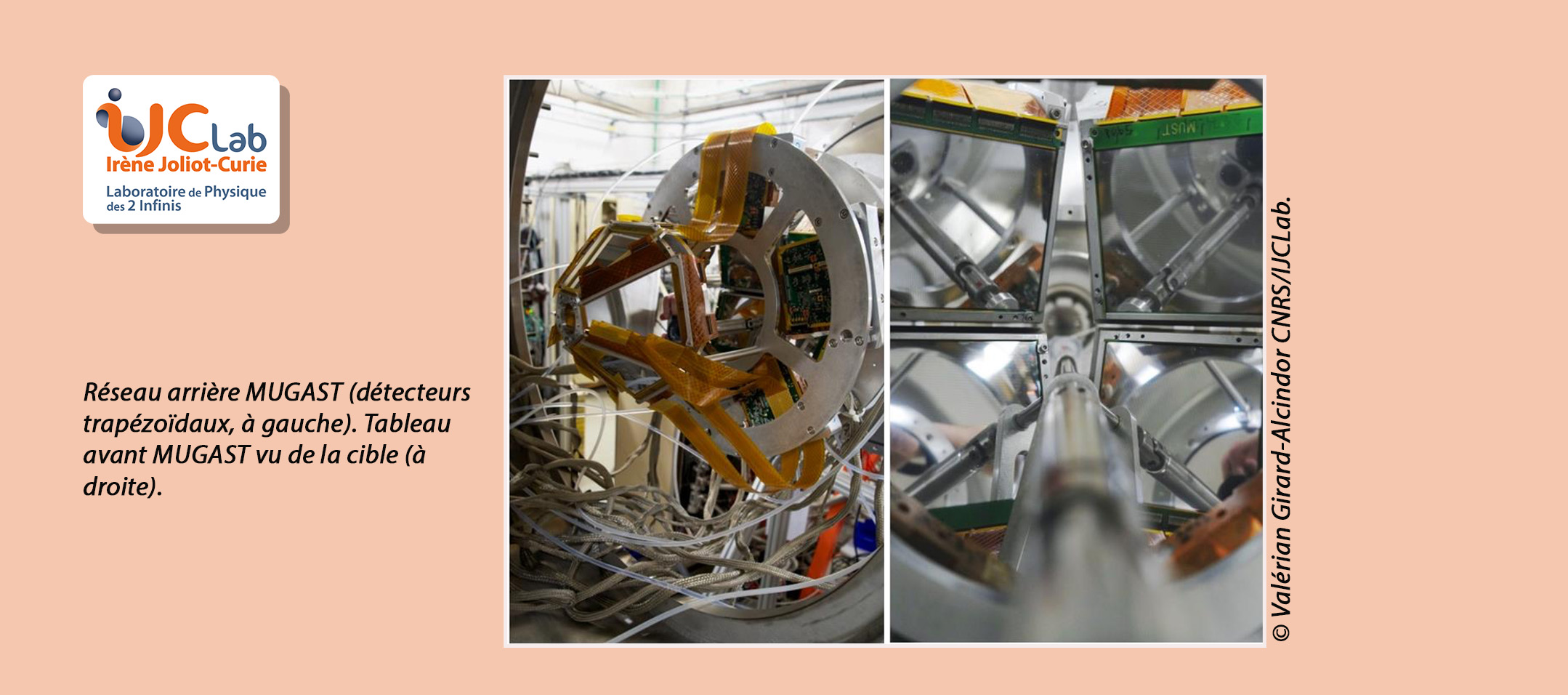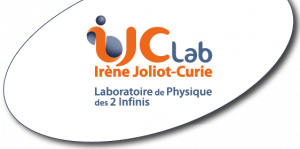
The MUGAST-EXOGAM campaign at GANIL started in the spring of 2023 for a period of 3 years. It aims to study the properties of exotic nuclei by measuring transfer reactions to deduce information on nuclear structure or for nuclear astrophysics. Six experiments have already been accepted and others are to come to highlight, for example, "clustering" (i.e. the presence of newts and/or preformed alpha in the nucleus) or even to reveal the properties of the tetraneutron, a nucleus made up of only 4 neutrons. This year, the experiments focused on the study of the properties of neutron-proton pairs which should play an important role in N=Z nuclei and on the determination of the Fermi surface at N=40 by the combined measurement of l addition and removal of a neutron.
The transfer reactions, carried out in inverse kinematics, lead to the emission of a light particle (at the front in the case of a nucleon withdrawal and at the back in the case of the addition of a nucleon) and a residual nucleus close to the beam. On the other hand, the transfer reaction makes it possible to populate excited states which can decrease by the emission of gamma radiation. Experimental measurement therefore requires the combination of several detection assemblies: 12 Germanium clovers from EXOGAM for the detection of gamma radiation, zero-degree detection based on a succession of ionization chambers and a plastic for the detection of heavy residues and finally, a set of 4 silicon-CsI telescopes at the front and 5 trapezium-shaped silicon detectors, called MUGAST for the detection of light particles. The whole represents more than 3,000 electronic channels.
This complex device driven by the NESTAR team of IJCLab was designed and implemented in collaboration with the LPC Caen and the GANIL, under the responsibility of Valérian Girard-Alcindor of ICJLab. After validation of the device using a test beam, the two experiments this year were successfully carried out. The first, on neutron-proton pairs, is the subject of Hugo Jacob's thesis at IJCLab. Great results in perspective!





